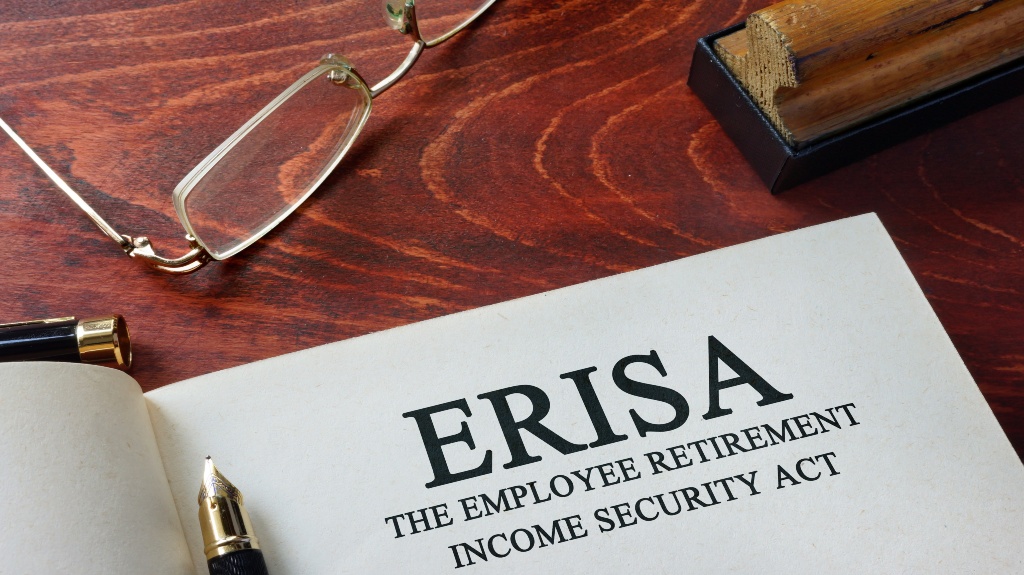Planning for retirement is an important step to take no matter where you are in your career. Retirement plans are designed to help you save money for retirement and live a financially stable life. You can choose from various retirement plans, which may make it difficult to decide which is right for you. The two primary categories of retirement plans are ERISA and non-ERISA plans. ERISA stands for the Employee Retirement Income Security Act of 1974, which established standards to protect individuals enrolled in private industry retirement plans, while non-ERISA plans fall outside of these specific regulations. This blog will explore both ERISA and non-ERISA plans in detail, highlighting their key differences.

What is ERISA?
ERISA (Employee Retirement Income Security Act of 1974) is a federal law that protects workers who participate in employer-sponsored plans. Some of the plans that ERISA covers are specific healthcare plans, 401k(s), pensions, deferred compensation plans, and profit-sharing plans. The main purpose of ERISA is to ensure that employee benefit plans are well-designed and maintained.
ERISA plans must include all of the following features:
- Plan Information: Employees must be informed of all details of the plan such as information about plan features and funding.
- Fiduciary Responsibilities: Those who manage and control plan assets are required to have fiduciary responsibilities.
- Grievance and Appeals Process: Employees must have a process to grieve and appeal if they have any issues with their benefits.
- Right to Sue: Employees have the right to sue for benefits and breaches of fiduciary duty.
What are Non-ERISA Plans?
Non-ERISA plans are employee-sponsored plans that are not subject to the Employee Retirement Income Security Act of 1974. Unlike ERISA-covered plans, non-ERISA plans are controlled mostly by the employee. The employee is in charge of choosing investments as well as controlling contributions and withdrawals. Typically, these plans offer fewer protections than ERISA-covered plans.
Examples of Non-ERISA plans:
- Governmental Plans: Retirement plans offered by federal, state, or local governments are usually exempt from ERISA. Some of these plans include the Federal Employees Retirement System and state-run pension plans.
- Church Plans: Plans offered by churches or religious organizations are typically exempt from ERISA. These plans are designed to cover employees of churches and associated entities.
- Deferred Compensation Plans: Non-qualified deferred compensation plans (NQDCs) offered by employers to a select group of management or highly compensated employees do not fall under ERISA. These plans allow employees to defer a portion of their compensation to a future date, typically upon retirement.
Benefits and Drawbacks of ERISA and Non-ERISA Plans
ERISA Plan Benefits:
- Employee Protections: ERISA sets standards to ensure that employees receive their promised benefits.
- Tax Advantages: Contributions grow tax-deferred, providing large tax savings.
- Legal Rights: Employees have the right to sue for benefits and breaches of fiduciary duty.
ERISA Plan Drawbacks:
- Complex Regulations: Following ERISA’s complex regulations can be time-consuming and confusing.
- High Costs: Hiring professionals and conducting audits can be costly.
- Legal Liability: Fiduciaries face personal liability for breaches of their duties.
Non-ERISA Plan Benefits:
- Simple Regulations: Less complex regulatory requirements result in easier plan management.
- Low Costs: Fewer regulatory requirements reduce the need for expensive professional services.
- Flexibility: Employers have the freedom to design plans that meet specific needs without stringent ERISA rules.
Non-ERISA Plan Drawbacks:
- Limited Employee Protections: Employees have fewer protections compared to ERISA plans.
- Less Regulatory Oversight: Reduced oversight can lead to a greater risk of mismanagement or lack of transparency.
- Potential Financial Risk: Non-ERISA plans may not have the same funding requirements, increasing risk if the employer faces financial difficulties.
Get Help From an Experienced ERISA and Employee Benefits Claims Attorney
Understanding the differences between ERISA and non-ERISA plans can be confusing, but it is crucial for both employers and employees. At Unruh Law, P.C., we provide knowledgeable counsel and legal support for any dispute under ERISA. Call 833-753-5168 or contact us online to schedule a consultation. Our firm is conveniently located in San Francisco and represents clients throughout the State of California.
